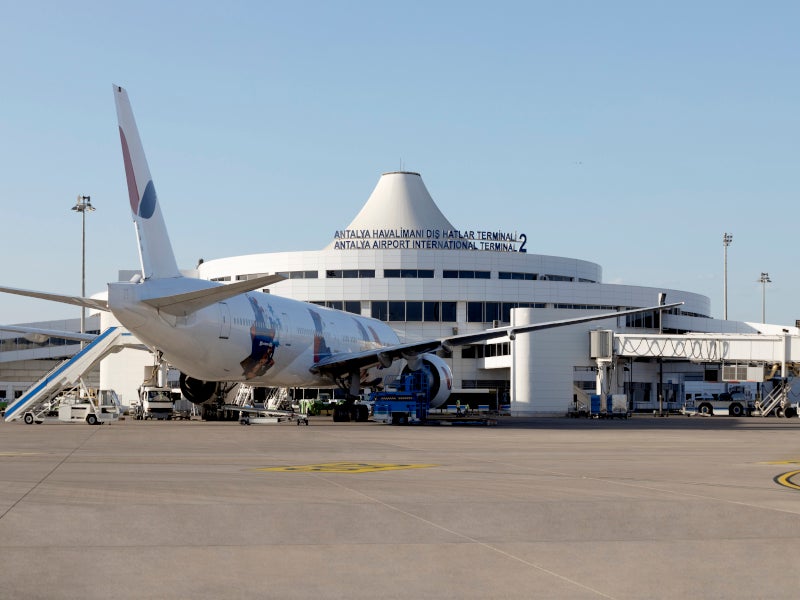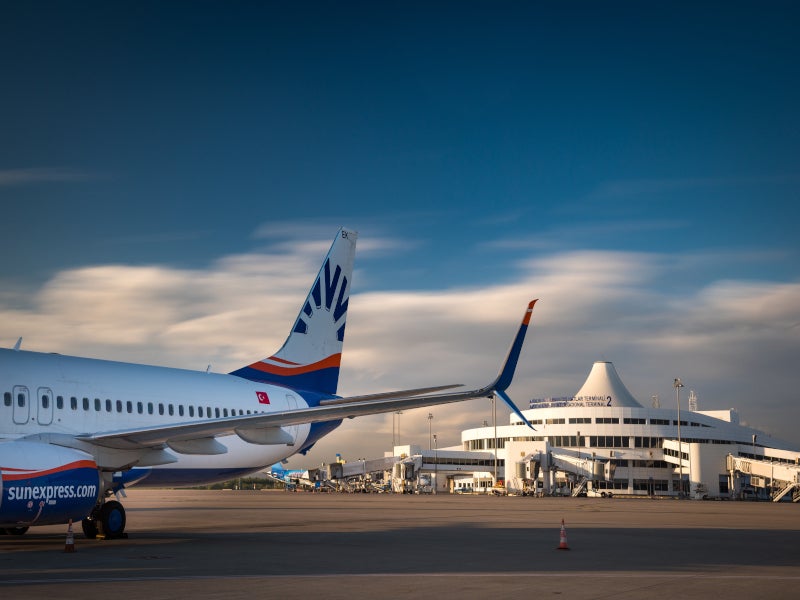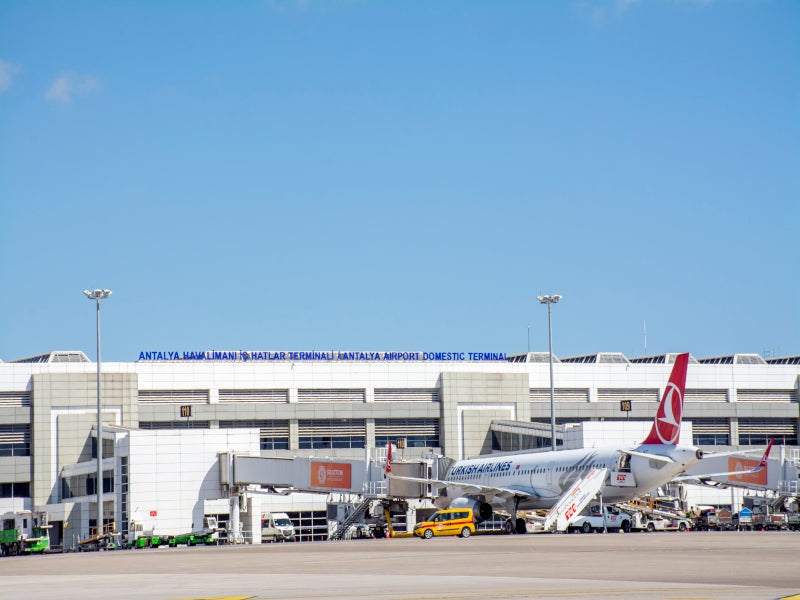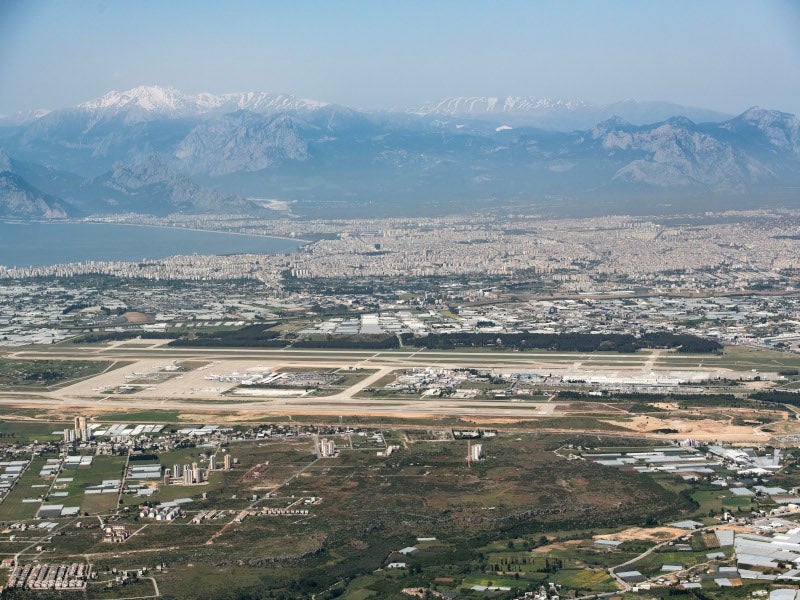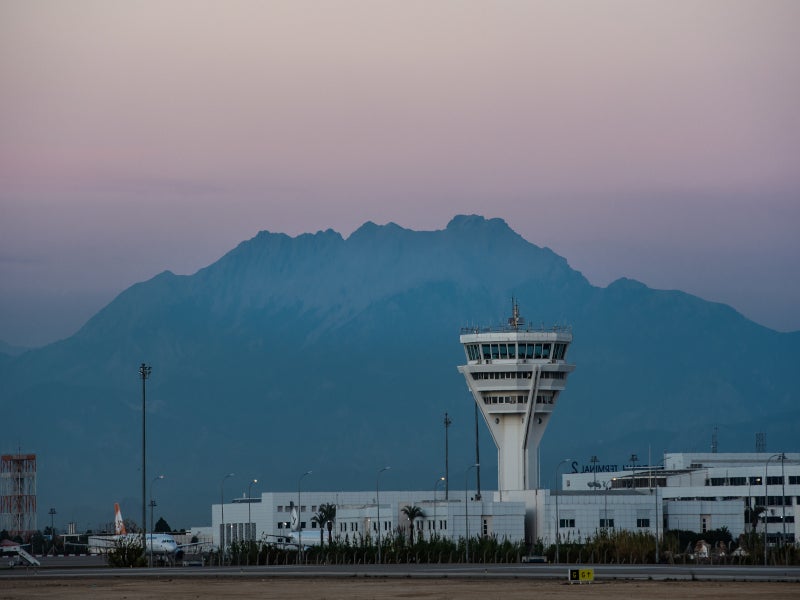Antalya International Airport is undergoing an expansion to upgrade the infrastructure and expand passenger handling capacity.
A joint venture (JV) of airport operators Fraport and TAV Airports won the tender held by the General Directorate of State Airports Authority (DHMI) for the concession to operate the airport for 25 years and expand its capacity in December 2021.
The JV paid €1.81bn ($2bn) to DHMI as an upfront payment for the concession in March 2022. It is undertaking the expansion project with an estimated investment of €765m ($840.2m), of which €600m ($659m) is being invested in the first phase.
Construction on the first phase of the expansion commenced in January 2022 and is expected to be completed in January 2025. It will double the airport’s annual passenger handling capacity from 40 million to 80 million.
Location of the international airport
The Antalya International Airport is located 3km northeast of the Muratpasa district centre of the Antalya province in Turkey. It covers an area of 13km² and is surrounded by agricultural lands and settlements.
Antalya international airport expansion project details
The expansion project is divided into three phases, with the majority of the work being planned to be completed within the first phase.
Phase one includes the expansion of the Terminal 2 building from 93,000m² to 223,000m². The expanded terminal will feature a sustainable design and is targeted to achieve LEED Gold certification for energy efficiency.
The expansion project will also expand the domestic terminal building from 37,500m² to 75,500m². The security areas will be expanded and the check-in and baggage reclaim sections will be relocated to the ground level, while the arrivals and departures sections located on the upper levels will serve more than five air bridges.
Phase one also includes the development of 1.5 million-square-metres of additional covered space for the apron, taxiway, and service road, which will increase the number of aircraft parking spaces from 108 to 176. It will also increase the number of permanent bridges in the terminals from 20 to 38. In addition, a new multi-storey car parking space will be developed along with a heliport built above.
The expansion will result in the construction of a new state guest house as well as VIP and CIP terminals built on an area of 6,000m². A new hangar area, a 2,800m² general aviation terminal and a 13,000m² cargo terminal will be built on the airport’s southern side and separated from the main entrance.
Phases two and three expansion details
Phase two expansion includes the development of a new 10,000m2, technical complex air traffic control tower by 2030 and a new international terminal T3 with a floor space of 70,000m² by 2038.
Phase three expansion involves the construction of an airplane fuel farm with a capacity of 80,000m³ for the storage and distribution of incoming fuel to the airport. The capacity will be increased to 150,000m³ with the launch of the T3 international terminal.
In addition, a 4MW solar power plant will be built to add to the airport’s existing power-generating facilities.
Baggage handling system details
The baggage handling system in the departures area of the expanded Terminal 3 will include 80 new check-in conveyors and four new screening lines with a Standard 3 explosive detection system. The system will also include a tilt-tray sorter, 36 chutes and two make-up carousels.
The arrivals section will include five inclined reclaim carousels and related feed lines.
Financing of the Antalya International Airport expansion project
The European Bank for Reconstruction and Development is providing a €140m ($152m) capex bridge loan for the expansion project.
The loan is part of a financing package that also includes funds provided by the International Finance Corporation and the Asian Infrastructure Investment Bank.
The Turkish government has exempted Fraport from paying customs duties on machinery and equipment worth $53.3m that will be procured from outside Turkey for the project.
Contractors involved in the expansion project
A JV of construction companies TAV Construction and Sera Yapi was awarded the engineering, procurement and construction contract for the expansion project.
Alstef Group, an automated handling solutions provider, was contracted to supply a baggage handling system for Terminal 2.
Mott MacDonald, a management, engineering and development consultancy, prepared the environmental and social impact assessment report for the project.
Clifford Chance, an international legal firm, advised the Fraport-TAV JV on the upfront fees paid towards the new concession for the Antalya international airport.

